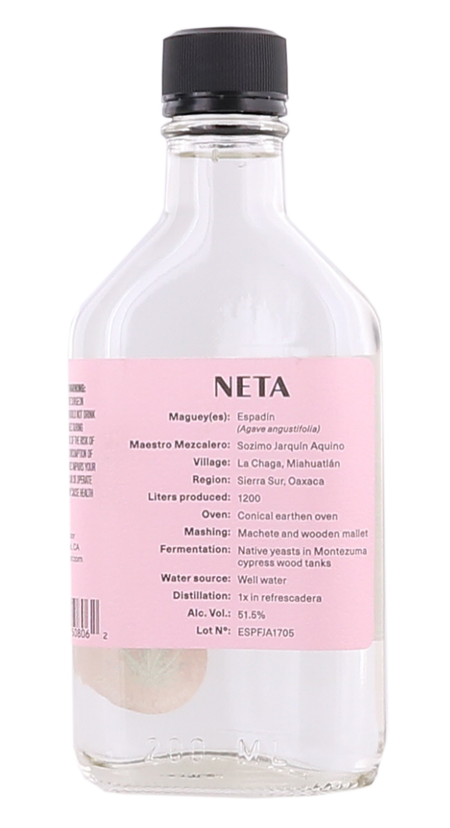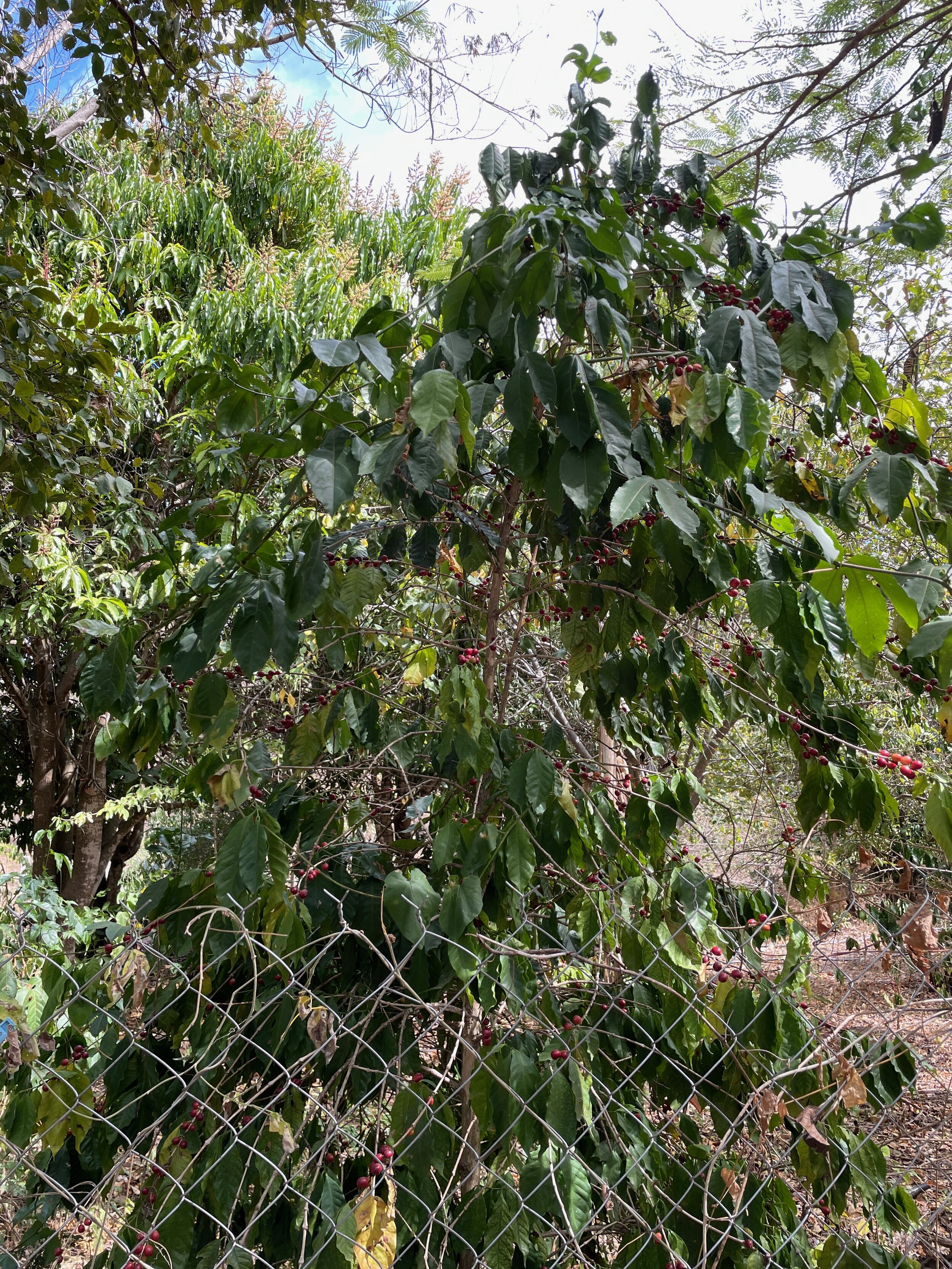Espadín
51.5%, May 2017
Delfino & Sozimo Jarquín, La Chaga, Miahuatlán Oax.
Maguey(es): Espadín (en guía)
• Provenance of the maguey: Homegrown
• Producer: Delfino and Sozimo Jarquín
• Village: La Chaga, Miahuatlán
• Soil type: Rocky, red earth tierra colorada
• Rest time after harvest:
• Oven: Conical earthen, five days with mesquite and guamuchil wood
• Rest time after oven: Five days
• Maceration: Hand-mashed with wooden mallet
• Fermentation: 1200L Montezuma cypress wood vats
• Dry fermentation time: 48 hours
• Wet fermentation time: Five days
• Distillation: 1x in copper pots with a refrescadera
• Final composition: cordón cerrado
• Batch size: 1,200L
• Date of distillation: May, 2017
• ABV: 51.5%
Spirits made by the Jarquín-Aquino family are true vestiges of old miahuateco styles and flavors. From harvest to distillation, the family continues to employ techniques and recipes that many others - for a multitude of reasons - have abandoned or altered over the last couple of decades.
Despite its laborious nature, they continue to mash the agave by hand with wooden mazos and occupy a particular recipe with a refrescadera that allows them to achieve a consistently high proof mezcal with a single pass through their small copper stills. Delfino proudly recalls dabbling with and promptly rejecting the new methods of distillation that were introduced in the early ‘90s, primarily through collaborative governmental and industry initiatives. While he did walk away from these programs with the new skill set of agave propagation through bulbil cloning, he was thoroughly unimpressed with the flavors, aromas, and overall quality of the “new” mezcal that were being made through double distillation, and in many cases, with the addition of water to lower the final alcohol content. Confident in the quality and character of his craft, Delfino returned to the ways he knows best, and has not deviated since. The family harvests and cooks agave only one time a year, with processing times dictated primarily by moon cycles and ambient temperatures. As such, distillation generally begins in the final stretch of April or the first week of May, and continues through the month with an annual production of around 1200-1800L, depending on the varying quantities of the different ripe agaves available each season. Most of this is sold fairly quickly on the local market through various channels, but with the platform of Agave Mixtape, it seemed like a fun idea to share a little bit with you folks back in the States.
The last name Jarquín is quite common among the mezcal producing villages of southern Oaxaca. The name itself is rooted in Arabic, with Moorish origins from the Iberian Peninsula. In certain communities in Miahuatlán, some attribute their original Jarquín ancestor has having descended into the valley from Zoquitlán sometime in the late 18th or early 19th century, bringing the tools and knowledge of copper distillation along with him.
Delfino Jarquín Aquino poses with a mezcalito
Delfino opens a tambo in his bodega
Mazos used for milling cooked maguey
Tinas resting between fermentations












